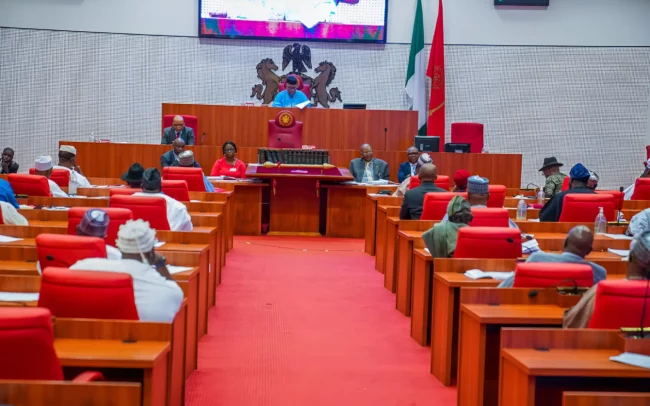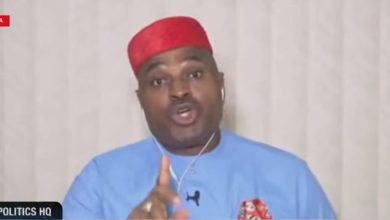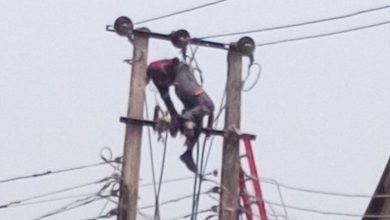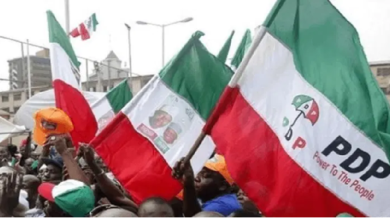Senate Considers Bill for Annual Presidential Address on Democracy Day, Proposes Inauguration Venue Change

A bill that would move future presidential inauguration ceremonies from Eagle Square to the National Assembly Complex and require an annual presidential address on June 12 to commemorate Democracy Day is being considered by the Nigerian Senate.
According to reports, Senate Leader Opeyemi Bamidele revealed this during a Tuesday interview.
According to him, the proposed bill would “institutionalize” a national speech on June 12, a date that has significant historical and democratic significance for the nation.
Because of its historical significance, Bamidele stated, “We hope to bring a bill soon to institutionalize the President’s address on June 12.”
To further enhance the day’s symbolic significance in Nigeria’s democratic development, he noted that the bill would mandate that the President give the Democracy Day speech at a joint session of the National Assembly.
Opening Ceremony for the National Assembly
Additionally, the bill suggests moving the presidential swearing-in event to the National Assembly Complex, which would be a major change to Nigeria’s democratic customs.
“With that bill, we hope to guarantee that the swearing-in ceremony of the next Nigerian president and commander-in-chief, who we believe to be President Bola Ahmed Tinubu, will take place in the National Assembly’s arcade,” Bamidele said.
The measure would further integrate the country’s democratic institutions into ceremonial traditions by formally moving the inauguration from Eagle Square in Abuja to a parliamentary setting if it is passed.
Extension of Budget Implementation and Constitutional Reform
Fiscal issues, particularly the expansion of the national budget’s capital expenditure component for 2024, are anticipated to be covered under the same proposal.
Read Also: ICC Affairs: Tinubu Insists on Compliance with Wike’s Orders
“We must sit down and evaluate the 2024 budget’s complete execution. While making sure the 2025 budget is completely implemented, we will further prolong the capital expenditure timeframe,” Bamidele said.
Bamidele also gave information on pending constitutional modifications in his capacity as Vice Chairman of the Constitution Review Committee.
Although he acknowledged the delays, he promised that public hearings would start at the zonal level and end with a combined session that was organized by the House of Representatives and the Senate.
“We completed over 70% of the job before to going public. We plan to finish the constitutional amendment process by the end of the third legislative year,” he stated.
June 12: A Nationwide Sign of the Democratic Movement
Since Moshood Kashimawo Olawale Abiola is generally thought to have won the annulled 1993 presidential election, June 12 has become a national day of reflection.
Widespread protests followed the election’s cancelation, which is frequently cited as the catalyst for Nigeria’s shift to civilian governance.
In honor of Abiola and the democratic principles he embodied, former President Muhammadu Buhari formally proclaimed June 12 as Nigeria’s Democracy Day in 2018, replacing May 29.
In his memoir published in February 2025, former military ruler Ibrahim Babangida gave the story a new angle by candidly acknowledging for the first time that Abiola was the winner of the 1993 election.





